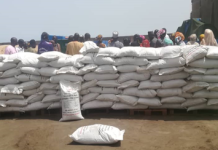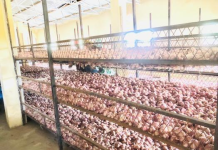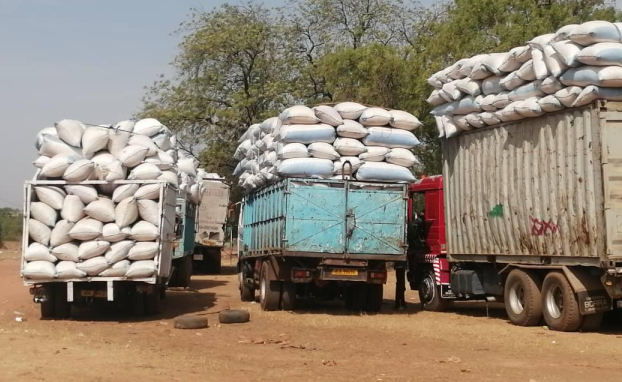By Biran Gaye
For decades, Gambian farmers have continued to sell groundnut produce to government as the latter hardly provides adequate cash to purchase groundnuts at various buying points, putting farmers in a precarious situation.
With this year’s trading season being no exception, farmers in the North Bank Region have lamented lack of adequate cash to buy their farm produce – groundnut, forcing them to sell on credit at buying points in anticipation of cash supply by the government.
Compounding their dire situation, the government warned farmers against selling their major farm produce (groundnut) to Senegalese traders as it curtails the country’s export-dependent produce to the international market.
In Sabach Sanjal District, farmers say government buys their groundnut on credit because there is inadequate cash supply at the buying points (Seccos).
Mod Gaye, a farmer at Ngayen Sanjal, told Foroyaa that the lack of payments for their groundnut has put them in a dreadful situation, describing it as “insensitive and challenging” to farmers. He alleges that the government is insensitive to the plight of the farmers as credit buying aggravates their suffering.
“The only thing we rely on is our farm produce, especially groundnut. We rely on the proceeds of the groundnut we sell to feed our family,” he said.
“I have already sold my groundnut on credit basis to the government but I am yet to be paid, making it difficult to foot my family bills. Since the government warned us against selling our groundnut to Senegal, they should pay us on time.”
He added that the government normally supplies cash to the agents and this is usually inadequate to pay all the farmers who take their groundnut to the “seccos”, leaving many unpaid as they await further cash supply to their buying point. This, he said, makes many poor farmers sell their groundnut to middlemen at lower price in order for them to meet the needs of their family.
One Pape Secka, a resident of Dibba Kunda, expressed similar remarks, calling on the government to provide enough cash to pay for the groundnuts they bought on credit.
“The government provides money, but it is not enough to pay for what they have taken,” he acknowledged.
“We have credited our groundnut to the government, but most of us are not paid.”
He says the lack of immediate payment sometimes puts them in serious situation as their livelihood wholly depends on their farm produce, noting the failure to pay farmers on time also increases the debt burden on them as they have to strive hard to provide for their families.
A farmer and middleman who buys groundnut from ordinary farmers, told Foroyaa on condition of anonymity that the government provides cash on a weekly basis to their buying points. However, he alleges that whenever the buying points pay for the groundnuts of the middlemen, little cash remains for the ordinary farmers who sell small quantities, making their payments pending as they anticipate more cash supply. This, he noted, exacerbates their situation as they direly need cash to settle family expenses and other obligations.
“Our buying points usually experience cash shortage because of the large quantity of groundnuts sold by middlemen,” he said. “When they pay us, little cash remains which cannot settle all the farmers that credited their groundnut to government.”
Unlike previous trading seasons, where government gave money directly to middlemen to buy groundnut on its behalf, leaving the buying points for the ordinary farmers who sell in small quantity as it eases pressure on the “seccos”, the government this year only provides cash to the buying points where the middlemen and the ordinary farmers sell their groundnuts.



















